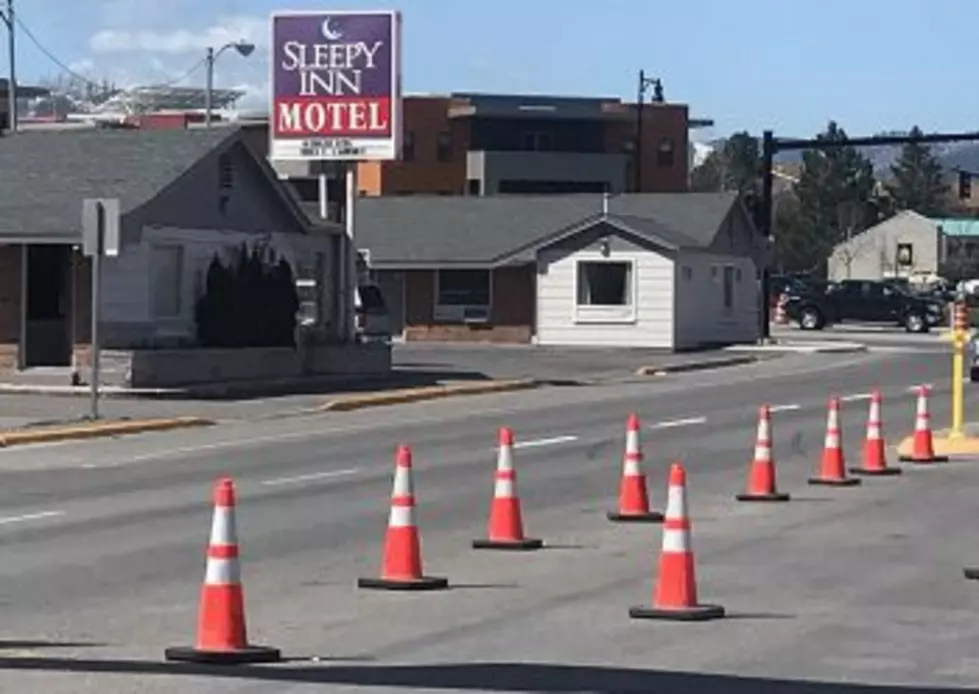
After pandemic, city to redevelop Sleepy Inn as mixed-use affordable housing
While the city's acquisition of the Sleepy Inn gives health officials an immediate tool to fight the coronavirus pandemic, others are looking toward Missoula's ongoing desire to create more affordable housing.
The Missoula City Council approved the $1.1 million purchase of the property on West Broadway on Monday night. While the acquisition was cloaked as a public health measure for its ability to quarantine those in need, its future redevelopment as a blended commercial and residential project also gels with city policies.
“Specifically, it supports the recommendations outlined in the Place to Call Home, which called for city investment in affordable housing through several strategies, including land banking, master planning and public-private partnerships,” said Eran Pehan, director of the city's Office on Housing and Community Development.
“We know that land banking is a key strategy used by cities across the nation to ensure, in this frenzied development environment we live in today, that the needs of our everyday citizens aren't left behind.”
The City Council adopted the Place to Call Home housing policy last year. It cited the need for several hundred new housing units a year to keep pace with current population growth, and expanding the city's housing market across a variety of incomes.
Among the strategies, Pehan said, land banking enables the city to strategically invest in key locations suited for housing near existing city services. Missoula County took similar steps last year with property it owned at Broadway and Mullan Road.
“The county served as a catalyst for the Trinity development by being able to invest four acres of land that was in their ownership,” Pehan said. “That investment is going to lead to over 130 homes to renters with some of the highest barriers in our community. That deal only worked because the land was already in the county's ownership.”
Acquiring the Sleepy Inn places the city in a similar position and gives it a voice in how the parcel is redeveloped down the road. With land costs being high in Missoula, as they are across much of the West, recent private housing developments have gone for market rate or higher.
While that expands the city's housing stock, it doesn't immediately relieve Missoula affordable housing crisis.
“By acquiring the Sleepy Inn, the city of Missoula will be in a position to make a powerful investment and help us achieve those ambitious goals that we adopted in our housing policy,” Pehan said. “It might be in the form of more affordable rental housing, or home ownership opportunities. It could be mixed-income homes. There are endless possibilities that can be formed and guided by a really robust community process once the current crisis has passed.”
Andrea Davis, executive director of Homeword in Missoula, said it made sense to acquire property that expanded the city's housing options down the road. Homeword has developed affordable housing in Missoula in the past, including Sweetgrass Commons.
“We've seen the city and county respond to a number of publicly informed plans that call for the redevelopment of West Broadway into a more walkable and pedestrian oriented urban environment,” said Davis. “It's important to pay attention to what we've heard from the neighborhood – that it's something that's truly a neighborhood amenity.”
The location of the old motel affords a number of financial tools not available elsewhere in the city. It sits in a qualified Census tract, making it suitable for low-income and new-market tax credits – two tools that can help combat the high cost of land.
The property also sits in the city's only opportunity zone – something created by the Trump administration in 2017 to direct investment toward low-income neighborhoods.
“Those financing tools, new market tax credits, low-income housing tax credits and opportunity zones, they make almost all things on this parcel possible,” said Pehan. “Owning property like this allows us to control that development and define what we want to see happen there, and it will help us achieve and get the things we want to see in other projects but can't make happen.”
In recent years, the Missoula Redevelopment Agency has played a role in the development of affordable housing, including the Solstice and Equinox facilities located across Russell Street from the Sleepy Inn.
Ellen Buchanan, director of MRA, said once the pandemic passes and the hotel is no longer needed as a quarantine shelter, the city will engage in a public process to identify the highest and best use of the property, with housing being part of the mix.
The city is set to embark on a similar process for the old Library site. That and the Sleepy Inn parcel are currently zoned for a variety of uses, including vertical mixed-use.
“The city can put together a partnership that allows us to really explore and create that model,” Buchanan said. “We have a lot of opportunity and flexibility in terms of what can happen on the corner. We know we have housing needs that must be met in Missoula, and having control of this piece of property in the heart of the community will assure it's redeveloped in a way that meets the community's goals and expectations.”
